Another Timbre TimHarrisonbre
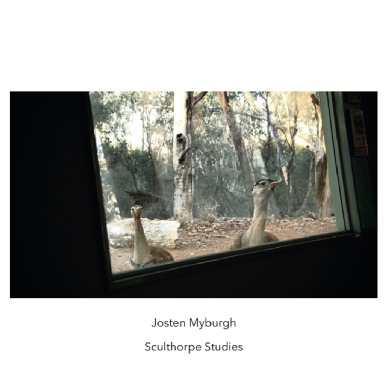
at171 Josten Myburgh - ‘Sculthorpe Studies’
A 40-minute piece for ensemble and field recordings by the young Western Australian-based composer Josten Myburgh. The piece uses harmonies taken from the music of the Australian composer Peter Sculthorpe, blended with field recordings made on Wiilman Noongar, Mandjoogoordap Binjareb Noongar, Palawa and Bidawal country.
Jet Kye Chong, percussion Jameson Feakes, electric guitar
Djuna Lee, double bass Stuart James, piano & electronics
Kirsten Smith, flutes Josten Myburgh, alto saxophone & electronics
Interview with Josten Myburgh
Tell me about your piece. First of all, why Sculthorpe, and secondly why the extensive use of field recordings?
In the history of colonial Australian music, Peter Sculthorpe is the first composer whose musical aesthetic seems to be profoundly changed by so-called “Australia” as a place. Before him, aside from a few experimentations with the traces of modernist musical ideas accessible to Australians, there’s a predominance of English pastoralism occasionally dressed up with appropriated Indigenous melodies and instruments. Sculthorpe is guilty of exactly the same “exotica” and cultural theft in a number of his works, but he bends and twists his musical ideas to meet an idea of the soundworld of Australia. What we end up with is quite a distinct harmonic language which is dry and bitonal, and a sense of contour that reflects a flat ongoing-ness that changes suddenly rather than gradually. Sculthorpe believed in using contour and atmosphere to reflect his vision of Australia's geography and climate, and in restraining his interest in European music to find something that better belonged to this part of the world.
I have some problems with this: aside from his cultural theft of Indigenous words and musical ideas, he also represents a very totalised vision of Australia. As someone who grew up in Tasmania, it is a little weird to see Sculthorpe obsessing over how “flat” Australia is. In attempting to connect with place, he seems to flatten place out, obfuscating its nuance and diversity and focusing on an image of a massive, expansive, dry continent (Sculthorpe’s music is now pretty synonymous with the image of a rippling heat mirage, an arid desertscape and some hopping kangaroos!). Sculthorpe also draws an odd connection with Australia and Asia (often a totalised Asia), remarking that he feels free and entitled to take musical ideas from Asian cultures simply by virtue of his geographic proximity to them. Non-European cultures are instrumentalised for Sculthorpe’s vision of a national music.
Despite that, and whilst I have no interest in defending Sculthorpe on these fronts, I’m interested in honouring this clumsy gesture of taking it seriously that imported musics might have to transform drastically if it is to make sense here. I sympathise with the strategy of being careful with how one is influenced by Europe and the United States and so on, given that we are totally inundated with culture from these places here. And I also wonder about knowing my history as a wadjela (non-Indigenous) Australian musician, including the parts of it of which I am ambivalent or disappointed by, and engage with that rather than shelving it. I see, and endorse, the value of just writing our own stories, but I'm also curious about getting a better grip on the fragmented lineage of composition in this place, and about what that does and what it means for young people like myself.
I question Sculthorpe’s means of achieving a sense of belonging, which I would describe as superficial in some ways, but I wonder if he was the first wadjela to ask some important questions in the domain of music here, and I think a lot of composers of notated music after him abandoned these questions, or continued but confused "place" with "nation". So this piece is little more than a cheeky juxtaposition of Sculthorpe’s idiosyncratic harmonies over imprints of the sound of Australia, which allows space to meditate on some of these questions and concerns.
What, I hope, makes the piece work is that the sounds do work together in quite an interesting way. I like that it’s difficult to know what meaning to draw from this, because a field recording is not a place, and because the places those field recordings were taken are undergoing such a radical transformation at this time and for the last 250 years since colonising forces violently interrupted First Nations custodianship of place. I’m not sure if we can listen to any of the recordings innocently – even the ones which don’t feature a rumbling highway, a massing of one species which could suggest an ecosystem off-balance, or whose spatial qualities and resonances come from the fact that the land has either been cleared for pasture or had trees planted far closer together than they ever would have grown prior to colonisation. And, even if they did seem to “belong” in this fixed, representative arrangement, does that really say anything about belonging, which is an active, ongoing process and not something one can just claim? Belonging means changing our processes and ways of engaging with the world, not dressing them up in our images of the world: younger artists like Ros Bandt might have acknowledged this shortly after Sculthorpe by stepping outside of the concert hall to make music outside, a gesture many others have pursued since.
I don’t really hear these questions being asked in the world that celebrates Sculthorpe, so it’s a playful provocation, as well as my own ambivalent engagement into my own history, through a way of composing that I really enjoy.
Can you tell me about your background in music, and how you came to where you are now?
I got into music by playing drums and, through exploring that instrument, discovering noise rock, hardcore punk and free jazz. That led me to the wider world of experimental music which I pursued in further studies at university. In my music education, I don’t recall ever having a curiosity or interest dismissed by the composition staff at the academy – anything I found exciting I was encouraged to pursue. So I feel grateful for that!
The model for how to be a composer that we studied the most came from the world of the European avant-garde and of American experimental music, with Australian examples of this. But these worlds were not really presented as being separate things, and we also spent plenty of time talking about hip hop, noise music and avant-garde rock and jazz, so the way we learnt music was broad and curious. It was then quite a shock to attend my first European “new music” summer school and realise that there was a clearly dominant musical approach and aesthetic reference points, and what I was doing at the time – electro-acoustic music with only a handful of tones on each page of notation – was quite at odds with that.
I was lucky to end up studying with Antoine Beuger shortly after that who affirmed that there was no one or “right” way to be a composer and that generosity and lightness were perfectly fine traits for one to have, rather than striving for an intimidating, dominating or controlling presence (in oneself or in one’s scores). Through studying with Antoine I also found a meaningful way to engage with performing notated music, rather than feeling like I don’t have the training or skill-set to be a performer and not giving myself permission to work in that way.
I think it was then the Australian improviser Jim Denley who encouraged me to start thinking about place, first in his writing and now in person since we’ve come to be good friends. I realised that the place I live is incredibly distinct by travelling around a lot, and I have a desire to be more grounded in it and be more like it. There is a history of this in Perth already, such as in Ross Bolleter’s work (a brilliant artist who I recommend all to check out). I’m interested in feeling the confluence of my influences from Wandelweiser and my studies with Antoine and with Michael Pisaro, and the generosity and openness embedded in that music, and influences from place itself.
Field recording, playing, improvising and making installations have all occupied my focus as a way of thinking more about this stuff, and I’ve drifted towards a practice that encompasses all of these ways of making and more.
I have had so many other brilliant mentors whom I’m immensely thankful for, including Alessandro Bosetti, Annette Krebs, Michael Pisaro, Francisco Lopez, Will Guthrie and Bae Il-Dong.
I understand that you are based in Perth, Western Australia. That’s a long way away from any other contemporary music hub. How does that geographic isolation affect the way you work?
It is a really long way away! It’s a cliché to refer Perth as “the most isolated capital city on Earth”. The idea of leaving is also really present here, and artists disappear all the time, which makes longevity of projects difficult. But it is an incredible place, for so many reasons, and despite the political will of many powerful people to totally ruin it (that’s not unique to here of course). It’s ridiculously biodiverse, and you can drive a few hours out of the city and be in a place where you can go days without hearing a plane or seeing another person.
I do feel like I could push myself in a very different way if I moved to a “hub”, like Berlin. But I wonder what that’s for? I see the present time as demanding that we mend our critically damaged relationship with the Earth and each other, and in becoming mobilised to do this despite the lack of an immediate, pressing imperative (obviously there is one, but most of us privileged people can still convince ourselves pretty readily that we can go about our lives as normal until some more visceral tipping point happens). I feel there is a tonne of knowledge in Australia about how to do this healing - mostly in Indigenous-led spaces - and being close to it is an incredible privilege.
I also think the lack of the existing networks and platforms encourages me to make connections I’m not sure I’d otherwise make. It also helps keep my music on the ground, outside of the networks where it is safely appreciated. It is nice to really test things by seeing if they convince people who’ve never heard anything like it before – and it also feels important to get out of the bubble as much as possible. Both of those things feel relatively accessible, or at least necessary, here. This has meant that I’ve come to organise a festival, workshops, a label and more, and it feels important to do this organising work and make space for this kind of music, rather than just being in a place where there’s already space.
All this seems to have produced a wonderful community here, making promising and distinct musics that I'm excited to be around and involved in.
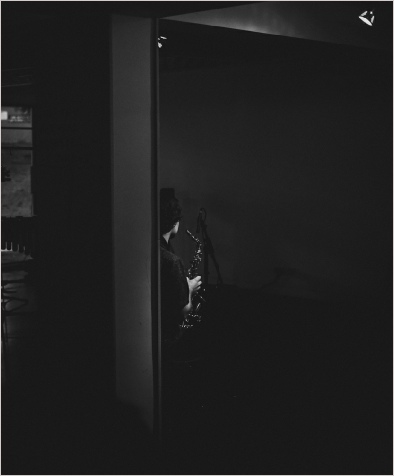
Josten Myburgh
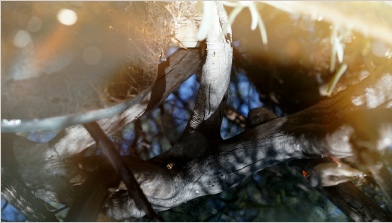
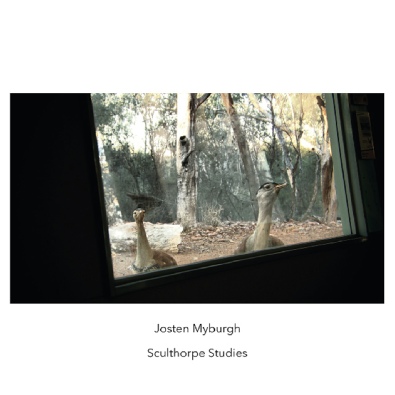
Still from the film ‘Night Parrot Stories’ by Robert Nugent
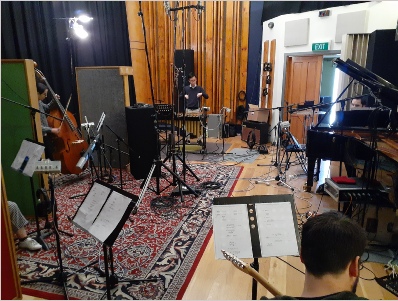
At the recording session